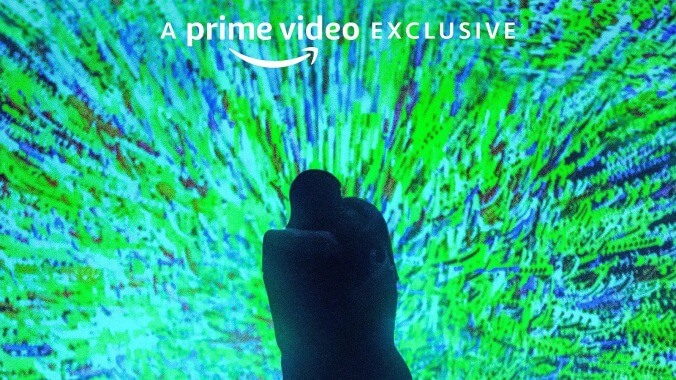Zoe is the dopey sci-fi love story that doesn't know it's creepy

In the near future of Drake Doremus’ sci-fi inanity Zoe, androids (called “synthetics,” because it’s that kind of movie) have become ubiquitous, but true love remains scarce as ever. Hip and good-looking people turn to the Machine, a computer matchmaker that’s basically OkCupid, or gobble up 100 mg doses of the euphoric drug Benysol, which simulates the feeling of falling in love—both products of a company called Relationist, the market leader in such things. Its latest promises to be a game-changer: a line of next-generation, super-realistic synthetic life partners with glowing white goop for guts, programmed with real memories à la Rachael in Blade Runner. The genius behind these enamo-robots is Cole Ainsley (Ewan McGregor, with glasses and very close cropped hair), a roboticist whose marriage fell apart after he and his ex-wife were given a low score by the Machine. Working late hours at the lab, Cole toils away at a male prototype (Theo James) that’s been implanted with some of his own memories, while his assistant Zoe (Léa Seydoux, with ’60s bangs) watches longingly.
It seems that Zoe (the e is silent, for some goddamn reason) has a serious crush on her older (albeit Ewan McGregor-looking) boss, whose goal of designing a perfect mate for mass production should set off all kinds of alarm bells. But there’s a reason he keeps giving her the cold shoulder: She’s actually the female prototype. There’s a long history of cautionary tales about screwed-up scientists and designer dream girls that stretches from Metropolis to Ex Machina (not to mention the likes of Her and Eternal Sunshine Of The Spotless Mind), and Doremus’ staging of this early twist as an “it’s not you, it’s me” breakup offers a glimmer of hope that this dull, unimaginative movie might be on to something. Built with only the barest anatomical features, Zoe can’t cry. But, as a sex scene later in the film reveals, her creator did deign to give her some kind of vaginoid orifice. The question of android pleasure is left unaddressed.
Of course, wrestling with the intrinsic creepiness of the premise would involve some social commentary, self-awareness, and honest-to-God storytelling, and that’s not Doremus’ bag. As in his first foray into sci-fi, the similarly derivative and sophomoric Equals, Zoe is dopily “about love”—whatever that means. Doremus’ style is yuppie plastic; he directs everything in sparkly, pointless, coffee-shop-window close-ups of actors’ faces, riding hard on the music of Beach House and Cigarettes After Sex, the result looking less like modern romance and more like a commercial for the same. Nonetheless, his talent for talking people into his movies is undeniable; the unnecessary supporting cast here includes Rashida Jones as Cole’s ex, Miranda Otto as the madam of a seedy robot bordello, and Christina Aguilera as that establishment’s star attraction. Even the way Zoe borrows ideas from better sci-fi films is purely cosmetic, a form of decoration not unlike the mid-century furnishings of its characters’ apartments. How does one look out at the state of the world today and come to the conclusion (as Doremus has in two movies) that the main problem of the future will be feelings?